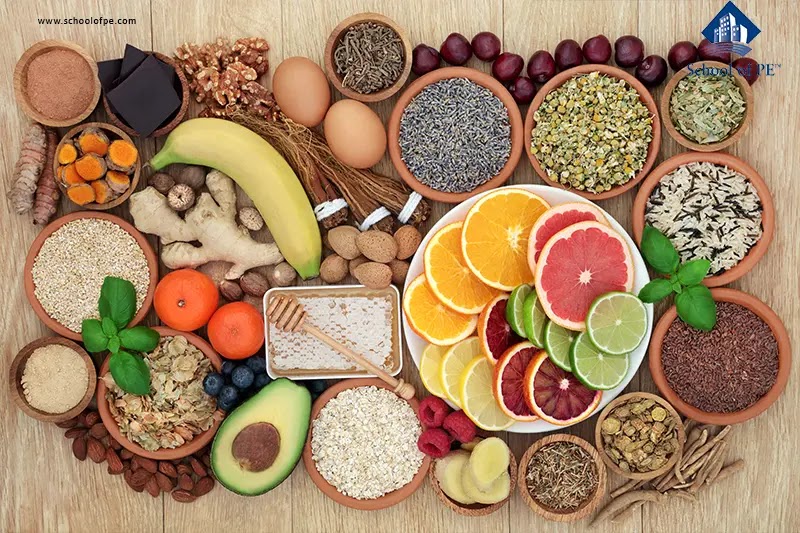If you are preparing for an exam, you may have a good understanding of what pre-exam anxiety feels like. Studying for an exam can be extremely nerve-wracking, but it doesn't have to be! By ensuring you treat your body right by staying in shape and watching what you consume, many factors that cause anxiety can be avoided. We've listed some of our favorite tips and tricks to avoid FE, PE, or SE exam anxiety below:
1. Exercise
We get it-it's sometimes hard to get motivated enough to exercise regularly. However, exercise can help you decrease your anxiety in various ways. One way, for example, is consistently exercising-a jog around the block, going to the gym, or doing a cardio workout in your living room. When you exercise, your levels of cortisol, a stress hormone, lowers. Your body also releases endorphins when you exercise. Endorphins are hormones that help regulate a positive mood. If studying for the FE, PE, or SE exam is exhausting, a nice workout session will help put you in a better mood!

Bonus fun fact: Research shows that cardio workouts increase activity in the hippocampus, the part of the brain that consolidates memory.
2. Eat Anxiety-Fighting Foods
... And by "anxiety-fighting foods," we aren't referencing chocolate, ice cream, or any other sweet foods we get cravings for when we're down. Although sweets are the ultimate "comfort" food, they typically don't help physiologically with reducing stress or anxiety.
What we really mean are foods that help regulate brain chemicals, hormones, and generally make you feel good. Check out some of our favorite food picks below:
1. Salmon: This protein contains docosahexaenoic acid and eicosapentaenoic acid. Both of these omega-3 fatty acids regulate neurotransmitters serotonin and dopamine in the brain, which help you relax and stay calm.i
2. Yogurt: This dairy product has been shown to promote overall mental health. It is believed to do so by inhibiting free radicals and neurotoxins, "which can damage nerve tissue in the brain and lead to anxiety"ii
3. Blueberries: This fruit contains a very high amount of vitamin C and flavonoids antioxidants, both of which have shown to reduce anxiety in numerous scientific studies.iii

3. Decrease Caffeine Consumption
We all (or, well most of us) love a good cup of coffee. While some people enjoy the ritual of drinking a hot, steaming cup of coffee in the morning to begin their day, other people sip on multiple cups of coffee throughout the day.
Even though coffee provides a power-boost, it actually can be detrimental for emotional health. When a caffeinated beverage is consumed, such as coffee, a lot of things happen such as an increase of heart rate, an increase of blood pressure, and increase the secretion of stress hormones (hence the connection to anxiety). Within the actual brain itself, caffeine "hinders the calming neurotransmitter GABA, which puts the brain activity on hold when needed. GABA is married to happiness and relaxation, so it's no surprise that having a low GABA level can lead to anxiety and panic attacks."iv

4. Sign Up for an Online Class or Tutoring Sessions
Studying for a big exam, especially one that will have a big impact on your career such as the FE, PE, or SE exam, is stressful to begin with. Did you know that there are resources out there to help you study for NCEES exams? From online classes to online tutoring sessions, having another individual help you through difficult engineering concepts will help decrease anxiety and increase your overall confidence and of course, will help you pass your FE, PE, or SE exam!
References
i. Bjarnadottir, A. (n.d.). DHA (Docosahexaenoic Acid): A Detailed Review. Retrieved from https://www.healthline.com/nutrition/ dha-docosahexaenoic-acid
ii. Kim, B., Hong, V. M., Yang, J., Hyun, H., Im, J. J., Hwang, J., .. Kim, J. E. (2016). A Review of Fermented Foods with Beneficial Effects on Brain and Cognitive Function. Preventive nutrition and food science, 21(4), 297-309. doi:10.3746/pnf.2016.21.4.297
iii. Xu, Y., Wang, C., Klabnik, J. J., & O'Donnell, J. M. (2014). Novel therapeutic targets in depression and anxiety: antioxidants as a candidate treatment. Current neuropharmacology, 12(2), 108-119. doi:10.2174/1570159X11666131120231448
iv. This Is Why Coffee Makes You Anxious And How To Stop It. (n.d.). Retrieved from https://www.deathwishcoffee.com/ blogs/news/caffeine-and-anxiety
No comments :
Post a Comment